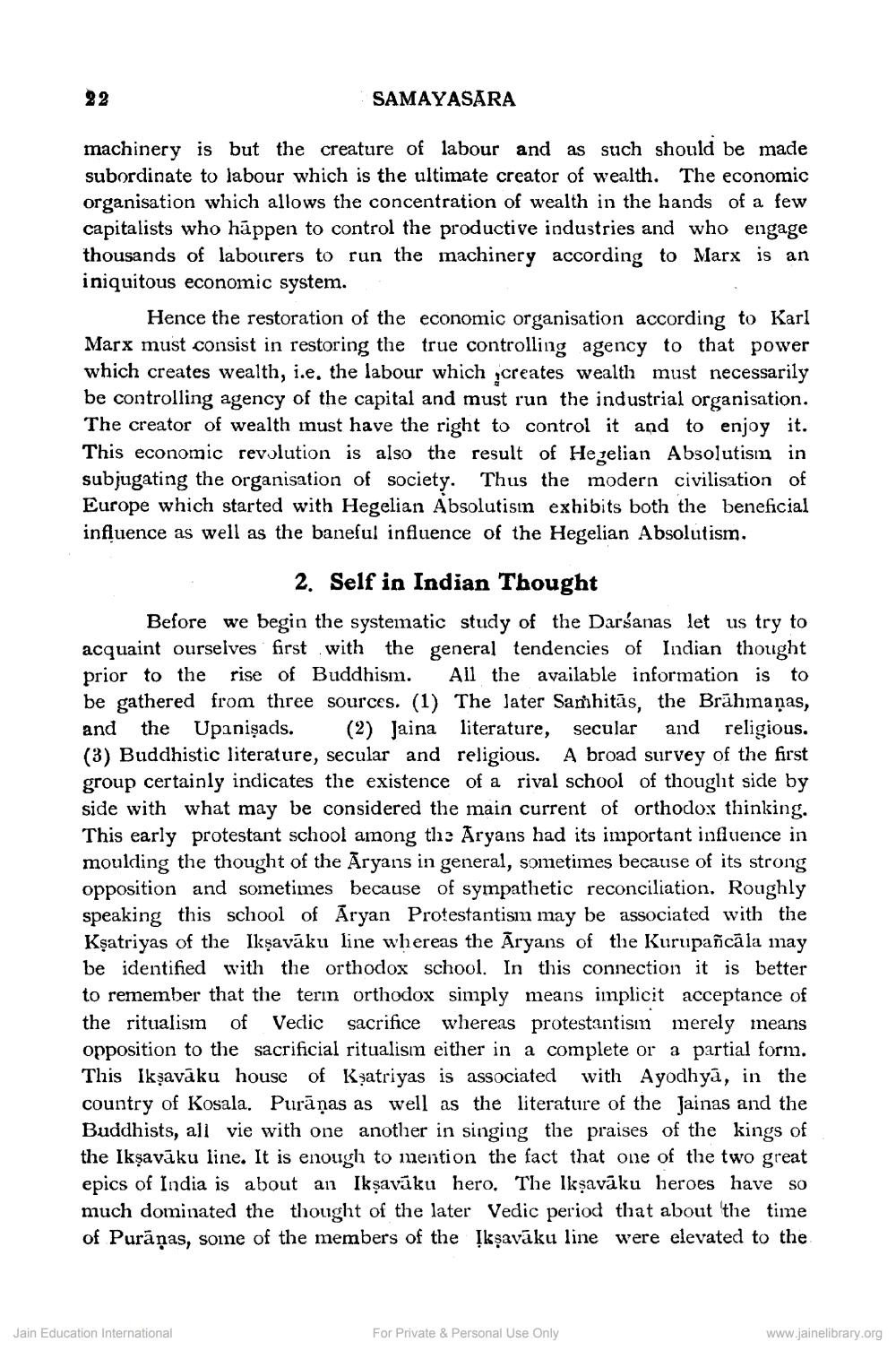________________
22
SAMAYASARA
machinery is but the creature of labour and as such should be made subordinate to labour which is the ultimate creator of wealth. The economic organisation which allows the concentration of wealth in the hands of a few capitalists who happen to control the productive industries and who engage thousands of labourers to run the machinery according to Marx is an iniquitous economic system.
Hence the restoration of the economic organisation according to Karl Marx must consist in restoring the true controlling agency to that power which creates wealth, i.e. the labour which creates wealth must necessarily be controlling agency of the capital and must run the industrial organisation. The creator of wealth must have the right to control it and to enjoy it. This economic revolution is also the result of Hegelian Absolutism in subjugating the organisation of society. Thus the modern civilisation of Europe which started with Hegelian Absolutism exhibits both the beneficial influence as well as the baneful influence of the Hegelian Absolutism.
2. Self in Indian Thought
Before we begin the systematic study of the Darśanas let us try to acquaint ourselves first with the general tendencies of Indian thought prior to the rise of Buddhism. All the available information is to be gathered from three sources. (1) The later Samhitas, the Brahmaņas, and the Upanisads. (2) Jaina literature, secular and religious. (3) Buddhistic literature, secular and religious. A broad survey of the first group certainly indicates the existence of a rival school of thought side by side with what may be considered the main current of orthodox thinking. This early protestant school among the Aryans had its important influence in moulding the thought of the Aryans in general, sometimes because of its strong opposition and sometimes because of sympathetic reconciliation. Roughly speaking this school of Aryan Protestantism may be associated with the Ksatriyas of the Ikṣavāku line whereas the Aryans of the Kurupañcala may be identified with the orthodox school. In this connection it is better to remember that the term orthodox simply means implicit acceptance of the ritualism of Vedic sacrifice whereas protestantism merely means opposition to the sacrificial ritualism either in a complete or a partial form. This Ikṣavāku house of Ksatriyas is associated with Ayodhya, in the country of Kosala. Purāņas as well as the literature of the Jainas and the Buddhists, all vie with one another in singing the praises of the kings of the Ikṣavāku line. It is enough to mention the fact that one of the two great epics of India is about an Ikṣavāku hero. The Ikṣavāku heroes have so much dominated the thought of the later Vedic period that about the time of Purāņas, some of the members of the Ikṣavāku line were elevated to the
Jain Education International
For Private & Personal Use Only
www.jainelibrary.org




